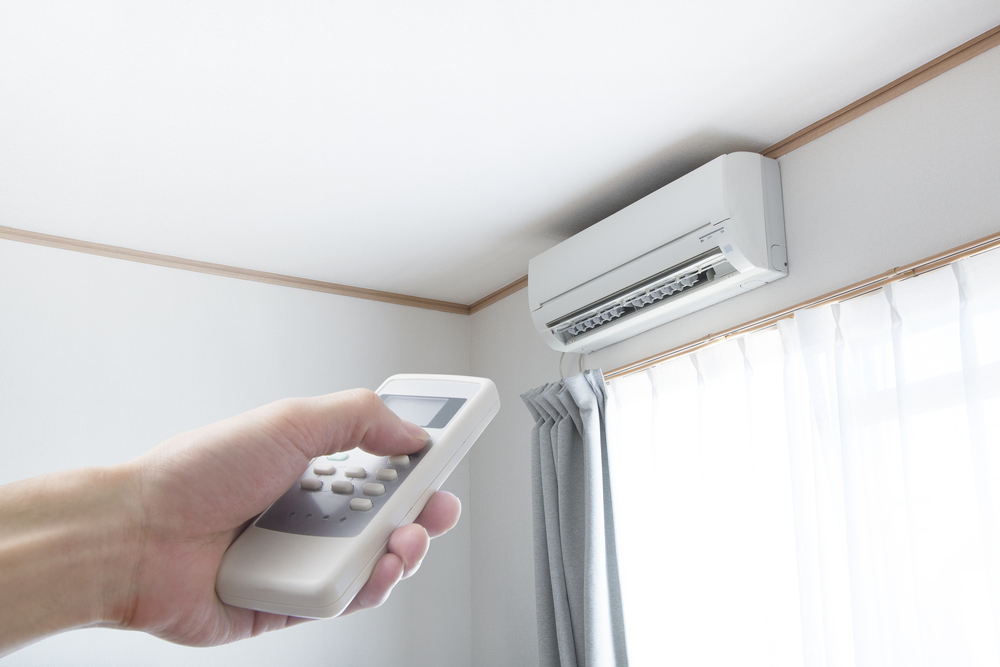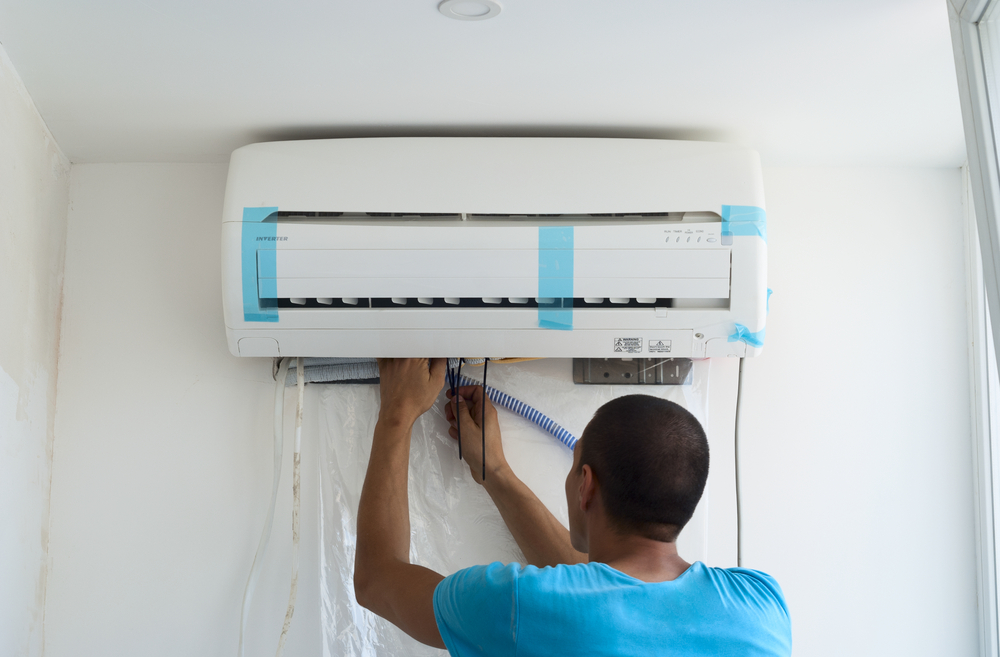Install Electric Heat Pump Heater
Did you know, electric Heat Pump Heating systems create both heat and air conditioning for your home? All in one! They cool in the summer, then work in reverse in the winter creating heat when you need it. They are highly efficient - 2 to 3 times more efficient than most other heating and cooling systems so they will save money on your utility bill. If you don’t have air conditioning now and are upgrading your heating system, this is a great opportunity to add cooling to your home. Heat pumps work everywhere, even in very cold climates and they are safer than burning gas in your home. Because they can run on clean, climate-safe renewable electricity, heat pumps also reduce climate and air pollution! If you have a gas or fuel oil heating system now, this is one of the most important actions you can take to reduce climate pollution as it makes a big change that will make an impact for a long time.
Your Impact
Action Steps & Tips
Introduction

If your current heating or air conditioning system is old, inefficient and expensive to run — or just not doing the job — it’s a good time to think about upgrading. One of the best options for an upgrade is an electric heat pump heating system that provides both heating and air conditioning. Heat pump heating systems are 2 to 3 times more efficient than heating with gas, fuel oil, or traditional electric resistance heating.
When a heat pump heating system is heating your house, it works the same way as the air conditioner, but in reverse. Instead of cooling the air, it heats it. If you don’t have an air conditioner now and are considering installing one, this is a great opportunity to add a heat pump to save on both heating and cooling! Heat pumps work everywhere, even in cold climates.
Heat pump heating systems also reduce climate and air pollution as they can run on clean, climate safe renewable electricity. And they are safer than burning gas in your home. If you have a heater powered by gas or fuel oil now, upgrading to an electric heat pump heater is an important action for reducing climate and air pollution.
Heat pump space heating systems:
-
Save energy and money
-
Provide both heating and cooling
-
Reduce climate and air pollution - this is an important action that makes a big impact because it usually lasts a long time
-
Are much safer to operate than gas powered systems
-
Usually qualify for rebates and credits
11. Choose the right heat pump heating system for your home
There are three types of heat pump heaters: central heating systems, ductless systems and window units. There are options for every home.
Types of heat pump heating systems:
Central heating and cooling with ducts: If you have central heating or air conditioning now, there are heat pump systems that can replace your current unit and can often use your existing ducts if they are in good working order. Heat pumps require sufficient air flow, so some duct repair or modification may be required.
Ductless systems: Heat pump systems also come in a ductless version where they are mounted to your wall inside and the outside unit can serve one or more rooms. If you have a boiler with a hot air radiator system or an electric baseboard heater and no ducts, or don’t have a central heating system at all, it is easy to install a ductless heat pump system and skip the expense of installing ducts. With a ductless system there is no heat loss from leaky ducts, which increases the efficiency of the system and lowers your energy and maintenance costs.
Zones: Both central and ductless systems can be set up with a zone system to allow individual control of temperature and comfort in different areas of your home.
Window units: Window-unit heat pumps are a great option for renters!
Geothermal: A geothermal heat pump system takes heat from the ground, rather than from the air. These are much more expensive to install but are very inexpensive to operate. They are a better fit for some areas than others. Check with a local installer to see if this is an option for your home.
22. Cost, savings and when to upgrade
Savings. Heat pump heaters are highly efficient and save money on heating and air conditioning. The savings on air conditioning are up to 60-70% or more over your current air conditioning bill, depending on the age and efficiency of your current system. The average savings on heating are:
-
Replacing a propane or fuel oil heater or an electric resistance heater: Up to $1,000 in savings a year or more
-
Replacing a gas heater: $60 a year or more depending on the relative prices of electricity and gas where you live. There are a few locations where it is break-even or slightly more expensive to operate than a gas heater.
Cost. Heat pump system costs vary based on the type of system you choose, the one you’re replacing, the size of your home and your climate. Some basic guidelines on system cost including installation:
-
Central heat pump system with ducts:
-
Under 1,500 square foot home: on average $10,000 ($7,000-$13,000)
-
1,500 to 2,500 square foot home: on average $20,000 ($17,000-$23,000)
-
2,500 to 5,500 square foot home: on average $30,000 ($23,000-$28,000)
-
-
Ductless, single zone heat pump:
-
On average $7,000 ($6,000-$9,000)
-
-
Window heat pump unit: $400-$1,000
-
Factors impacting cost:
-
If you live in a very cold climate, expect increased costs from a cold climate heat pump model.
-
Costs vary based on the cost of labor in your area.
-
Expect lower costs if you live in a moderate climate or have good insulation.
-
If you are switching from a gas, propane or fuel oil powered system, and you have an older home, a lower amp electrical panel or don’t use air conditioning currently, you may need to upgrade your electrical panel to a higher service level. Panel upgrades are expensive and will increase the cost of installation. However, most homes will not require a panel upgrade. Check with your HVAC company to explore options to avoid a panel upgrade.
-
Rebates. There are rebates and incentives for heat pump heaters depending on where you live. Check the resources below or with your local utility or city for more information. These incentives can be substantial and often cover the extra cost for the install, making it cost effective to switch. There are also incentives for electrical panel upgrades and energy efficiency actions, like insulation, available in some areas.
When to upgrade. In general, it is best to upgrade when your current heating or air conditioning system is old, inefficient and expensive to run or just not doing the job. If your current system is powered by propane, fuel oil or electric resistance heating, the annual savings will be up to $1,000 a year or more — making this a good investment that will pay for itself over the lifetime of the system. To confirm your savings and benefits, ask a heating professional to estimate your cost savings and help you decide when it makes the most sense to upgrade.
Efficiency first. Before you upgrade your home heating system, consider making energy efficiency upgrades! This will lower the amount of energy you need to heat and cool your home and therefore reduce the size of the system you will need. Smaller systems save money. Insulating your attic, weather-stripping your home, or upgrading to more efficient electric appliances are all great ideas before you upgrade. Get a home energy checkup for professional advice on which upgrades to make and when! Learn more on the Home Energy Checkup action.
33. Choose & install your new system
The best way to choose a new system is to work with a professional installer. A few things that should be considered:
Energy efficiency rating. Heat pumps are rated by a heating season performance factor (HSPF) for heating and a seasonal energy efficiency ratio (SEER) for cooling. In warmer climates the SEER rating is more important; in colder climates, the HSPF rating is more important. Look for the Energy Star label to ensure good ratings and work with your installer to find the best equipment for your home.
Noise rating. Also, consider the noise rating of the unit. Fans and compressors make noise, so choose one with a rating of 60 decibels or lower and install it away from windows. 60-70 decibels is similar to the noise from an average refrigerator.
Choose an experienced HVAC professional. There are many requirements and considerations to a heating system installation. Hire an experienced HVAC professional to do the installation, preferably one that has experience with heat pump systems. Be sure to check references and get at least 3 quotes before you choose! Finally, once you have installed your new system, maintain it regularly for maximum efficiency, energy savings, and comfort!
Congrats! Enjoy the comfort of savings with your new system! You're making a big impact.

